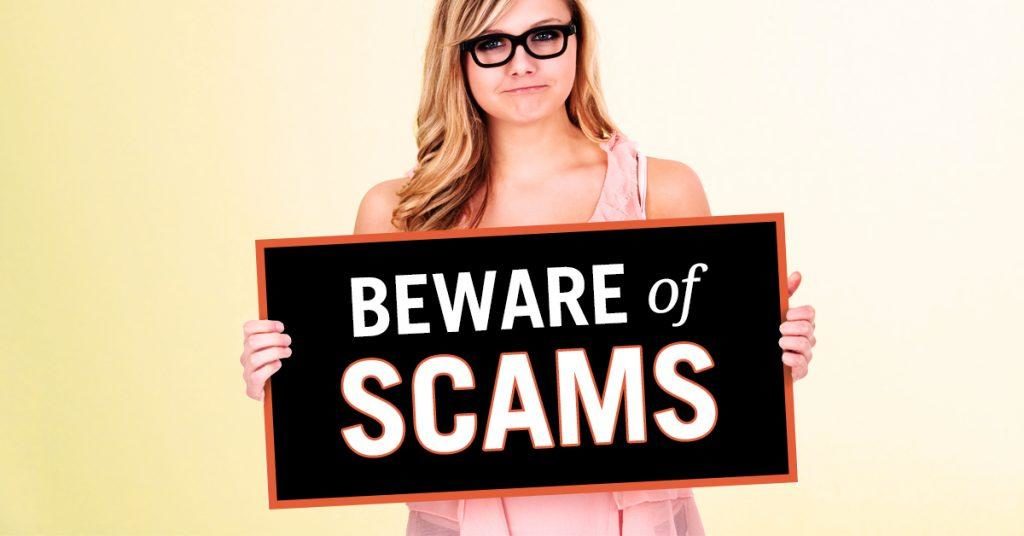 There are countless ads online from companies offering to help you manage your student loan debt for a fee but did you know that you can get help with your student loans for free?
There are countless ads online from companies offering to help you manage your student loan debt for a fee but did you know that you can get help with your student loans for free?
While the U.S. Department of Education (ED) does offer some legitimate student loan forgiveness programs and ways to lower your student loan payments, they are all free to apply for.
Don’t pay for help when you can get help for free!
If you’re a federal student loan borrower, ED provides free assistance to help:
- lower your monthly payment;
- consolidate your loans;
- see if you qualify for loan forgiveness; and
- get out of default.
Lower Your Monthly Payment
Are you out of a job or not earning very much? The federal government makes it easy for you to switch to a more affordable repayment plan at any time at no cost.
Your loan servicer — the company that works on behalf of ED to collect your payments, respond to your customer service inquiries, and manage other tasks related to your federal student loans — can help you decide which repayment plan best suits you and help you switch at no cost! Not sure how to contact your loan servicer? Find out here.
Before you contact your servicer, check out the Repayment Estimator to get an idea of plans available and see estimated monthly payments.
Consolidate Your Loans
If you have multiple loans that you want to combine, you can apply for loan consolidation through StudentLoans.gov. The application is free, and unlike many student loan debt relief companies, there are no extra processing fees.
Some people find it simpler to group all their student loans into a single loan with one interest rate and one monthly payment. Also, if you received your student loan(s) before 2011, you could qualify for better repayment options by consolidating.
See If You Qualify For Loan Forgiveness
Loan forgiveness is the cancellation of all or some portion of your remaining federal student loan balance. This is sometimes called a discharge.
Many student loan debt relief companies advertise that they can help you get your loans forgiven. But, what most people don’t know is that they are simply using the ED’s free resources to help you, but are charging you to do so.
You can find out whether you qualify for loan forgiveness due to your job, disability, the closure of your school, or other circumstances.
Your loan servicer also can help you determine if you qualify for loan forgiveness… at no cost!
Get Out of Default
If your loan is already in default, debt relief companies will target you with online ads, phone calls, and maybe even letters to your home address. By being in default, you’ve already incurred added interest, and you’re subject to collection fees. There’s no reason to add additional fees by signing up with a debt relief company.
(Note: Debt relief companies are different from collection agencies. Here are the collection agencies ED contracts with.)
If you’re in default, contact us immediately and we can help you get your loans back on track.
There are 3 FREE ways to get out of default if you go through the federal government.
How to Protect Your Log-In and Account Information
When student loan debt relief companies offer to manage your loan account, to do so, they will ask you to provide them with your federal student aid log-in information (your FSA ID) or to sign a Power of Attorney. Think about it: your log-in information is the equivalent of your signature on your student loan documents. If you share this information or sign a Power of Attorney, you’re giving a debt relief company the power, literally, to take any action they choose, make decisions for you, and act on your behalf.
And if the debt relief company collects fees from you, but never actually makes any payments on your behalf, you still will be responsible for those outstanding payments and late fees.
You should protect your FSA ID and account information as securely as you guard your ATM PIN.
What to Do If You Think You’ve Been Scammed
If you think you’ve been scammed by a student loan debt relief company:
- Contact your bank or credit card company, and request that payments be stopped.
- Change your FSA ID password and contact your servicer and the company you contracted with to revoke Power of Attorney.
- Submit a complaint with:
- The Federal Trade Commission at gov/complaint
- The Consumer Financial Protection Bureau (CFPB) by calling 1-855-411-2372. Or, to submit a complaint online, under “Products and Services,” select Debt Collection. Then, choose Get Started. From there, you will be prompted to answer a series of questions to file and submit your complaint.
- Your state’s Office of Consumer Affairs or Consumer Protection, which usually is within or affiliated with the office of the state’s Attorney General.
Remember, there are no student loan companies affiliated with the U.S. Department of Education that charge fees to help you manage your loan repayment. We have many resources available to help you successfully manage your loans for free. Remember, never pay, stay away!
